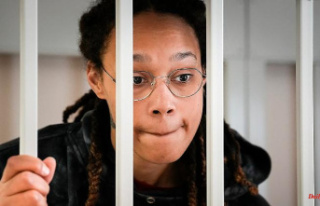Do millions of heaters fail in winter when gas runs out? The head of the energy industry association Andreae disagrees. Andreae also thinks the gas levy is right and has an idea of how high it could be.
In the debate about possible heating failures in winter, the general manager of the Federal Association of Energy and Water Management, Kerstin Andreae, calls for prudence. "I would really like to ask you not to foment such scaremongering," said Andreae on the ntv program "Frühstart". The "Bild" newspaper reported that the federal government feared that millions of homes could remain cold for a long time in the event of a gas shortage.
It is true that a technician is needed to get heaters going again after a failure, says Andreae. However, there are precautions for a possible drop in pressure in the lines. "If such problems occur in a street, in a gas pipeline, then the network operators and the players know this very well and can act very early on." Andreae called on citizens not to buy large numbers of fan heaters and radiators. "People need to know that gas will be supplied to household customers and protected customers first, in the event of a real gas shortage."
Andreae praised the cabinet decision of the traffic light coalition on the planned gas levy. There is still a lot to be adjusted in the implementation, but in principle it is good that the levy is coming. "It is there to support the importers, i.e. to continue to ensure security of supply in Germany." However, Andreae spoke of a "really tough" measure that hit citizens and industry very hard. This is precisely why it is important that the federal government draw up a regulation that includes all gas purchasers equally.
Andreae does not expect the gas levy to be at the top end of the scale, between 1.5 and 5 cents per kilowatt hour. "I assume that the 5 cents will not be reached." The surcharge must be as low as possible so that it does not burden people too much. Ultimately, it depends on how much gas is flowing and being sourced from alternative sources, as well as the amount of RDF entering the market. It is planned that the levy from suppliers and public utilities will be passed on to the end customer in full. "That's right, because otherwise the municipal utility would just get stuck on these costs."
Another relief package for the citizens is absolutely necessary. "We are extremely concerned that these price increases will actually mean that they can no longer afford the energy." This is another reason why it is important to take the issue of energy savings seriously. "You don't have to pay for anything you don't use."
The head of the association spoke out in favor of using less gas to generate electricity. Although a certain proportion is needed for combined heat and power generation, "of course, we also have to reduce gas-fired power generation as much as possible." However, she restricted that parts of the German electricity would be needed abroad via the internal energy market, currently mainly in France.












